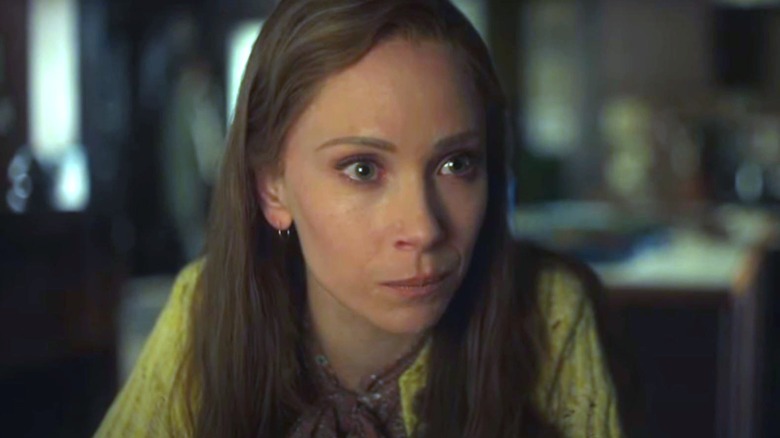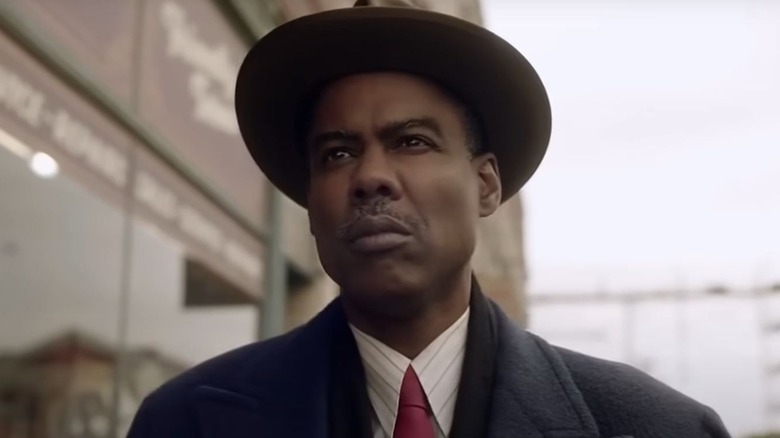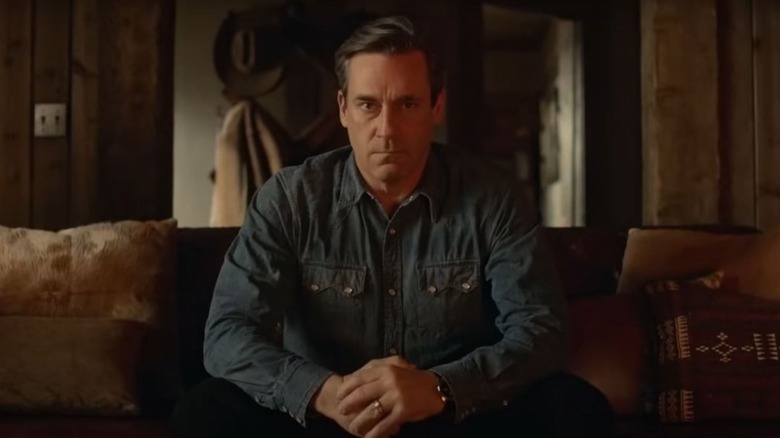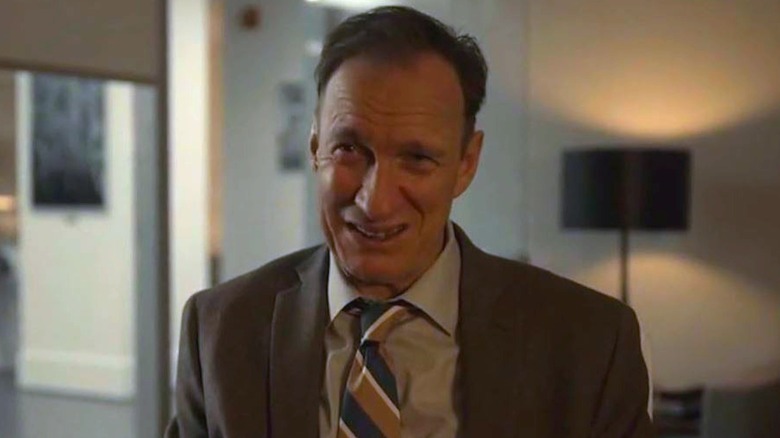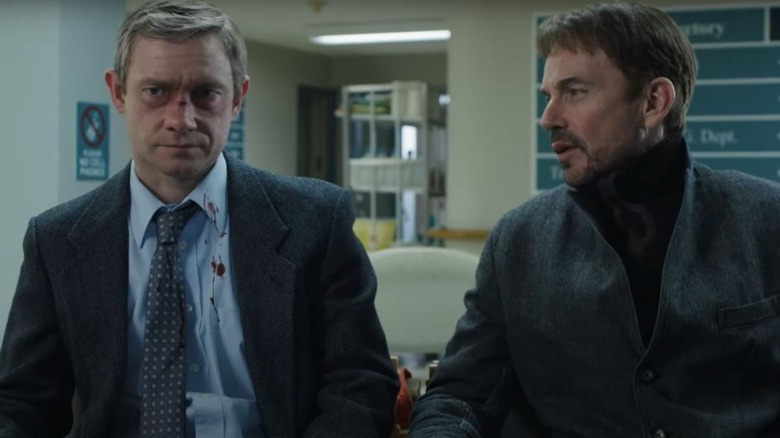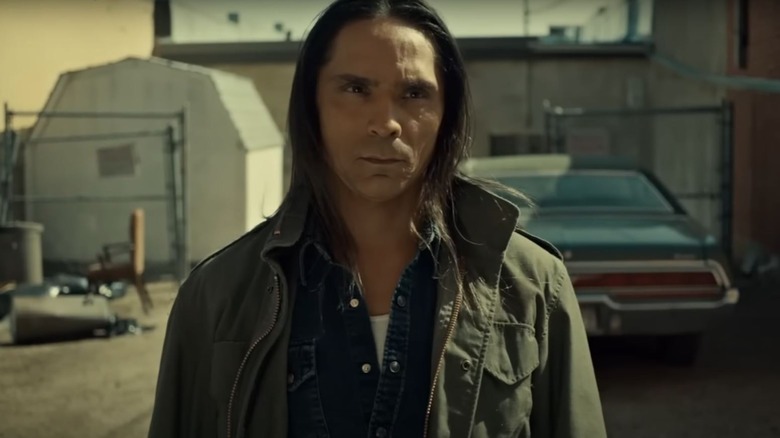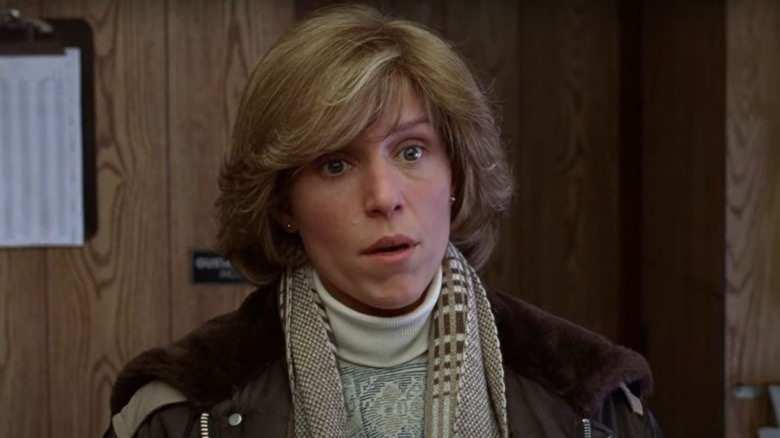All Of Fargo's 5 Seasons Ranked From Worst To Best
1996's dark crime comedy-drama "Fargo" earned Frances McDormand, Joel Cohen, and Ethan Coen the first of each of their four Academy Awards. The movie's combination of jovial Midwestern banter and grim murder mystery proved a hit with audiences and critics alike, bringing in over $51 million at the worldwide box office against a measly $7 million budget.
The unique charm of "Fargo" made it seem like it could only exist as a standalone movie. However, in 2014, showrunner Noah Hawley and FX proved this assumption wrong with the reimagining of "Fargo" as an anthology series, which focuses on telling largely unrelated but loosely connected crime stories from the "Fargo" universe. This unlikely project has proven popular, and with five seasons already released, "Fargo" has grown from a single movie to a full-on franchise.
But which is the best "Fargo" season out there, and how do the others fare in comparison to it? Here's a ranking of all five seasons of the show, from worst to best.
5. Season 4
Let's get one thing out of the way before we begin: There's no such thing as a bad "Fargo" season. That being said, one of them has to rank last, and its comparatively meager (but still pretty great) Rotten Tomatoes Tomatometer score of 84% puts Season 4 in this position.
The show's fourth season takes the anthology action further into the past than the others, making its 1950s Kansas City setting far more removed from the Coen brothers' movie than the rest. The wintery scenes, offbeat comedy, and impressive plot twists are still there, but the decision to focus on a war between two slick and smartly-dressed criminal groups instead of bumbling underachievers in puffy winter coats sometimes makes it seem more like a mafia period drama than, well, "Fargo."
That being said, the season does use its setting very effectively. The season's lengthy opening scene might just be the single best "Fargo" season opener ever, and excellent characters like the chilling killer nurse Oraetta Mayflower (Jessie Buckley) make for a memorable viewing experience. The time period and the choice to focus on Loy Cannon (Chris Rock) and Josto Fadda's (Jason Schwartzman) Black and Italian crime syndicates also allow "Fargo" Season 4 to expose the era's blatant racism and discrimination, to the point of bringing back a younger version of a major Season 2 character to experience it firsthand.
4. Season 5
"Fargo" Season 5 takes the show's signature themes to the modern days of 2019, twisting and turning the series' biggest strengths and baking a completely unique cake from the ingredients. Plucky police officers, wealthy businesspeople, strong-willed female characters facing nigh-impossible odds, small-time criminals, and occasional ambiguous supernatural elements once again crash into each other with unexpected results — and with more than enough changes to the usual formula to keep things fresh.
Stars Juno Temple, Jennifer Jason Leigh, Jon Hamm, and Joe Keery continue the series' tradition of excellent casting. Hamm and Temple, in particular, shine in their roles as a corrupt sheriff and a mysterious housewife. Meanwhile, Sam Spruell's menacing Ole Munch continues the series' other tradition of including mysterious, borderline-supernatural characters.
There's no doubt that Season 5 is an excellent season of television that, depending on the viewer's preferences, might challenge just about any other "Fargo" season for supremacy. However, judging by its "Fargo" merits alone, it's a bit of a remix of the show's biggest strengths, which means that the viewer may benefit from already being familiar with the things that came before to enjoy it to the fullest — which is ironic since the season's overarching plot features far fewer connections to the other seasons than the previous four. Still, the wild ending of "Fargo" Season 5 alone makes it easily worth your while.
3. Season 3
"Fargo" Season 3 arrived with an albatross firmly tied around its neck. Not because it's bad — it's very good, in fact — but because it had to follow Season 2, which essentially perfected the "Fargo" format.
Nonetheless, Season 3 still gives it the old college try and, impressively enough, succeeds to the tune of reviews that rival Season 1's success. This time, our key police officer is Gloria Burgle (Carrie Coon), the crafty femme fatale is Nikki Swango (Mary Elizabeth Winstead), and Ewan McGregor shines in a double role of wealthy Emmit Stussy and his disgruntled twin brother Ray.
However, the crown jewel of the season is David Thewlis' V.M. Varga, a devilish white-collar crook who presides over a vast criminal organization and forcefully inserts his shady business in Emmit's life. As is usually the case with "Fargo," every cast member is reliably great, and the plot is inarguably fascinating. Still, Thewlis' ability to make Varga a stoic and restrained supervillain while constantly nibbling at the edges of the scenery with his horrifyingly damaged teeth is the secret weapon that lifts Season 3 into the show's top three.
2. Season 1
When FX announced "Fargo" would return as a show, it was understandable for people to think that trying to recapture the Coen brothers' lightning in a bottle was a fool's errand. "Fargo" Season 1 took all of one episode to prove such expectations wrong. The show connects to the original movie's themes and visuals just enough to feel like a spiritual sequel, but is completely unafraid to be its own thing.
Whatever a fan of the movie might be after, "Fargo" Season 1 delivers many times over. Spiritual successors to Marge Gunderson (Frances McDormand)? Sure, there's Molly Solverson (Allison Tolman) and her entire family, with Gus Grimly (Colin Hanks) thrown in for good measure. A corrupt, bumbling average Joe like Jerry Lundegaard (William H. Macy)? Martin Freeman's Lester Nygaard makes sure to raise that bar. A peculiar criminal duo? Mr. Wrench (Russell Harvard) and Mr. Numbers (Adam Goldberg) are here for you. And the entire season is brought to the next level with the introduction of Billy Bob Thornton's Lorne Malvo, a malevolent and mysterious hitman who brings death and corruption wherever he goes.
"Fargo" Season 1 is every bit as exciting as the original movie, and its sheer quality built the foundation for the entire anthology series. The only reason it doesn't sit at the absolute top of this list is that one season simply did it even better.
1. Season 2
"Fargo" Season 2 is more than a worthy follow-up to the excellent Season 1; it pulls off an almost impossible task by taking some of the greatest elements from its predecessor and expanding on them in ways that simultaneously defy and exceed expectations.
Who could have seen young Lou Solverson (Patrick Wilson) somehow become an even more charming character than his awesome daughter, or Lou's own father Hank (Ted Danson) surpassing even him? Who was prepared for the increasingly outlandish story arc of Peggy (Kirsten Dunst) and Ed Blumquist (Jesse Plemons), who ooze such chemistry that it's not a huge shock to find out the two actors are now married? Who on Earth could have foreseen mild-mannered and polite enforcer Hanzee Dent (Zahn McClarnon) becoming such a destructive force of nature that even Lorne Malvo would be happy to sit down and take notes? And who could have predicted that UFOs would factor in the plot more than once, for crying out loud?
Season 1 mentions a Sioux Falls case from 1979, heavily implying it to be far worse than anything that happens during the course of that storyline. Season 2 tackles that challenge with gusto and easily vaults over the sky-high expectations. The sophomore season's complex and entertaining story once again explores the themes of stone cold criminals, plucky law enforcement officers, and average people whose morality slowly erodes as the plot progresses. In other words, it doesn't reinvent the wheel — it simply does every single thing just a little bit better than any "Fargo" season before or since. Through its sheer dedication to its characters and loving attention to detail, Season 2 earns the top spot.
Where does the Fargo movie rank in the TV show seasons?
The behind the scenes story of creating the "Fargo" show features assorted production hurdles, strange cameos and references, and fun anecdotes. Its opening's infamous claim that "Fargo" is based on a true story has caused many people to wonder whether the film's fictional events actually ever played out for real. Most importantly, though, is the fact that there would be no "Fargo" series without the "Fargo" movie. This alone means that the film should be treated as its own beast — but out of curiosity, where would it sit on this list if we treated it as one of the seasons of the show?
According to Rotten Tomatoes, the answer is surprising. "Fargo" Season 1 and "Fargo" Season 2 both have higher Tomatometer ratings than the movie — 97% and 100%, as opposed to the Coen brothers' film's 95%. Likewise, viewers rate these seasons slightly above the movie. It's not hard to understand why, really. The first two seasons of the anthology series build on the movie's themes and vibe, creating an increasingly stylish and intricate web of storytelling without losing the original's charm along the way. They also manage to use their longer runtime to their benefit. While "Fargo," the film, manages to condense its leisurely-paced Minnesota mystery into 98 minutes, the seasons have 10 episodes each to play with.
While it may seem like a travesty to even consider that the classic 1996 movie might play second fiddle to the show it inspired, the critics' and viewers' consensus implies precisely that — at least when it comes to the first two seasons. Ultimately, "Fargo" the movie doesn't really belong on this list — but if it did, it would come in at number three.
